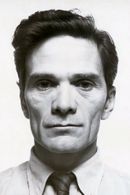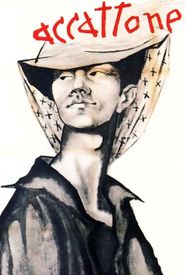Pier Paolo Pasolini's illustrious career in film was preceded by his remarkable literary accomplishments. As a published poet by the age of 19, he had already authored numerous novels and essays before venturing into the world of screenwriting in 1954. His inaugural film, Accattone (1961),was a groundbreaking adaptation of his own novel, featuring a vivid portrayal of a pimp's life in Rome's slums, which sparked widespread controversy. The film's explicit content led to Pasolini's arrest in 1962, resulting in a suspended sentence, due to his contribution to the portmanteau film Ro.Go.Pa.G. (1963),which was deemed blasphemous.
Pasolini's next project, The Gospel According to St. Matthew (1964),was a bold, unflinching retelling of the biblical story, which defied conventional expectations by presenting a realistic, stripped-down portrayal of Christ's life. This film, unlike his previous work, received widespread critical acclaim and is still regarded as one of the most honest and authentic portrayals of Christ on screen.
Pasolini's filmography would subsequently oscillate between personal, often provocative adaptations of classic literary texts and more experimental, provocative projects that reflected his controversial views on Marxism, atheism, fascism, and homosexuality. Notable examples of his work include Oedipus Rex (1967),The Decameron (1971),The Canterbury Tales (1972),Arabian Nights (1974),and Teorema (1968),a film that explored themes of identity, morality, and the blurring of boundaries.
Pasolini's later works, such as Pigsty and Salò, or the 120 Days of Sodom (1975),were characterized by their unflinching portrayal of humanity's darker aspects, often incorporating elements of fascism, sadism, and sexuality. Salò, in particular, was banned in Italy and many other countries due to its graphic content, and was the subject of intense controversy and debate.
Tragically, Pasolini's life was cut short in mysterious circumstances shortly after completing Salò. His legacy as a filmmaker, poet, and intellectual continues to be celebrated and debated to this day, with his work remaining a testament to his unwavering commitment to artistic expression and his unrelenting exploration of the human condition.















































